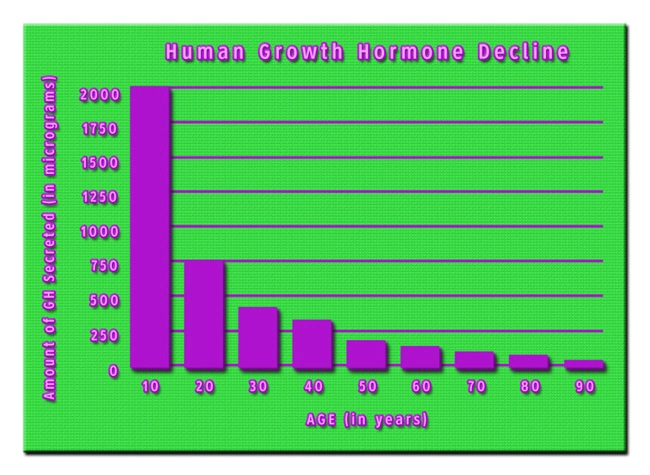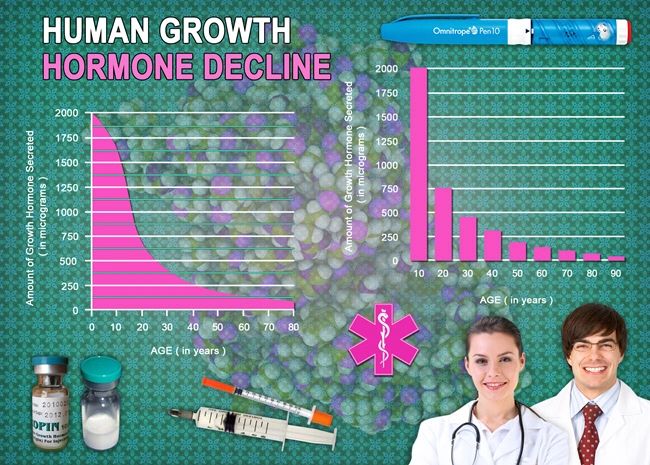
Introduction to Primary Hypogonadism
Primary hypogonadism, also known as testicular failure, is a medical condition where the testes do not produce sufficient levels of testosterone, the primary male sex hormone. This condition can lead to a variety of symptoms including decreased libido, erectile dysfunction, infertility, fatigue, and mood disturbances. For American males, understanding and managing this condition is crucial for maintaining quality of life and overall health.
The Importance of Education
Education plays a pivotal role in the effective management of primary hypogonadism. Knowledge about the condition, its symptoms, and available treatments empowers men to seek timely medical intervention and adhere to prescribed therapies. Educational programs and resources tailored to American males can help demystify the condition and reduce the stigma often associated with hormonal imbalances.
Symptoms and Diagnosis
Recognizing the symptoms of primary hypogonadism is the first step toward diagnosis and treatment. Common symptoms include a decrease in sexual desire, difficulty achieving or maintaining an erection, loss of body and facial hair, and unexplained weight gain. American males should be encouraged to discuss these symptoms openly with healthcare providers. Diagnosis typically involves a thorough medical history, physical examination, and blood tests to measure testosterone levels and other hormone markers.
Treatment Options
Once diagnosed, several treatment options are available for managing primary hypogonadism. The most common treatment is testosterone replacement therapy (TRT), which can be administered via injections, gels, patches, or pellets. TRT can help alleviate symptoms and improve quality of life. However, it is essential for patients to be educated about the potential side effects and the importance of regular monitoring to adjust dosages as needed.
In addition to TRT, lifestyle modifications such as regular exercise, a balanced diet, and stress management can complement medical treatment. Education about these lifestyle factors can empower American males to take an active role in their health management.
The Role of Support Systems
Support systems, including family, friends, and patient advocacy groups, are vital in helping American males cope with primary hypogonadism. Educational resources should highlight the importance of building a strong support network. These groups can provide emotional support, share experiences, and offer practical advice on managing the condition.
Addressing Cultural and Social Factors
Cultural and social factors can influence how American males perceive and manage primary hypogonadism. Traditional notions of masculinity may lead to reluctance in seeking help for conditions related to sexual health. Educational initiatives should address these cultural barriers and promote a more open and supportive environment for men to discuss their health concerns.
The Impact of Education on Long-term Health
Educated patients are more likely to engage in proactive health management, leading to better long-term outcomes. For American males with primary hypogonadism, understanding the condition can lead to earlier diagnosis, more effective treatment, and improved quality of life. Educational efforts should be ongoing and adapted to the evolving needs of patients.
Conclusion
Primary hypogonadism is a manageable condition, but effective management requires a comprehensive understanding of the disease. Education is a critical tool in empowering American males to take control of their health. By providing accessible and culturally sensitive educational resources, we can improve the lives of those affected by this condition and foster a more informed and supportive community.
Contact Us Today For A Free Consultation
Dear Patient,
Once you have completing the above contact form, for security purposes and confirmation, please confirm your information by calling us.
Please call now: 1-800-380-5339.
Welcoming You To Our Clinic, Professor Tom Henderson.

- Primary Hypogonadism: Understanding, Overcoming Stigma, and Effective Treatment in American Males [Last Updated On: February 26th, 2025] [Originally Added On: February 26th, 2025]
- Primary Hypogonadism and Diabetes: Dual Challenges and Integrated Management in Men's Health [Last Updated On: March 18th, 2025] [Originally Added On: March 18th, 2025]
- Primary Hypogonadism and Obesity Link in American Males: Hormonal and Metabolic Insights [Last Updated On: March 18th, 2025] [Originally Added On: March 18th, 2025]
- Primary Hypogonadism in American Men: Medical Treatment and Vital Support Networks [Last Updated On: March 18th, 2025] [Originally Added On: March 18th, 2025]
- Primary Hypogonadism: Impacts, Diagnosis, and Treatment Options for American Men [Last Updated On: March 18th, 2025] [Originally Added On: March 18th, 2025]
- Primary Hypogonadism: Innovative Treatments and Hope for American Males [Last Updated On: March 19th, 2025] [Originally Added On: March 19th, 2025]
- Emotional Journey of Primary Hypogonadism in American Males: Challenges and Support [Last Updated On: March 19th, 2025] [Originally Added On: March 19th, 2025]
- Exercise Strategies for Managing Primary Hypogonadism in American Males [Last Updated On: March 20th, 2025] [Originally Added On: March 20th, 2025]
- Diet and Nutrition's Role in Managing Primary Hypogonadism in American Males [Last Updated On: March 20th, 2025] [Originally Added On: March 20th, 2025]
- Primary Hypogonadism: Causes, Symptoms, and Management in Aging American Men [Last Updated On: March 21st, 2025] [Originally Added On: March 21st, 2025]
- Primary Hypogonadism's Impact on Muscle Mass in American Males: Insights and Interventions [Last Updated On: March 21st, 2025] [Originally Added On: March 21st, 2025]
- Financial Burden of Primary Hypogonadism on American Men: Costs, Coverage, and Coping Strategies [Last Updated On: March 22nd, 2025] [Originally Added On: March 22nd, 2025]
- Managing Primary Hypogonadism: Navigating Diagnosis, Treatment, and Healthcare in America [Last Updated On: March 22nd, 2025] [Originally Added On: March 22nd, 2025]
- Primary Hypogonadism in American Men: Advocacy, Diagnosis, and Treatment Strategies [Last Updated On: March 22nd, 2025] [Originally Added On: March 22nd, 2025]
- Primary Hypogonadism: Impact on Work and Management Strategies for American Men [Last Updated On: March 22nd, 2025] [Originally Added On: March 22nd, 2025]
- Exploring Primary Hypogonadism: Current Treatments and Future Innovations for American Males [Last Updated On: March 22nd, 2025] [Originally Added On: March 22nd, 2025]
- Primary Hypogonadism in American Men: Holistic Management and Quality of Life Improvement [Last Updated On: March 23rd, 2025] [Originally Added On: March 23rd, 2025]
- Primary Hypogonadism: Long-term Effects and Management in American Males [Last Updated On: March 23rd, 2025] [Originally Added On: March 23rd, 2025]
- Primary Hypogonadism: Causes, Impacts, and Treatment Options for American Men [Last Updated On: March 23rd, 2025] [Originally Added On: March 23rd, 2025]
- Primary Hypogonadism: Understanding, Diagnosing, and Treating Low Testosterone in American Males [Last Updated On: March 24th, 2025] [Originally Added On: March 24th, 2025]
- Managing Primary Hypogonadism: Testosterone's Role and Treatment in American Men [Last Updated On: March 24th, 2025] [Originally Added On: March 24th, 2025]
- Diagnosing Primary Hypogonadism: Symptoms, Testing, and Treatment Journey for American Men [Last Updated On: March 24th, 2025] [Originally Added On: March 24th, 2025]
- Primary Hypogonadism and Sleep: Impacts and Interventions for American Men [Last Updated On: March 24th, 2025] [Originally Added On: March 24th, 2025]
- Genetic Testing for Primary Hypogonadism: Diagnosis and Management in American Males [Last Updated On: March 24th, 2025] [Originally Added On: March 24th, 2025]
- Primary Hypogonadism: Causes, Treatment, and Management for American Men [Last Updated On: March 24th, 2025] [Originally Added On: March 24th, 2025]
- Primary Hypogonadism's Impact on Physical Activity in American Males [Last Updated On: March 25th, 2025] [Originally Added On: March 25th, 2025]
- Challenges in Diagnosing Primary Hypogonadism in American Males: Symptoms, Testing, and Stigma [Last Updated On: March 25th, 2025] [Originally Added On: March 25th, 2025]
- Primary Hypogonadism in American Men: Symptoms, Diagnosis, and Mental Health Support [Last Updated On: March 25th, 2025] [Originally Added On: March 25th, 2025]
- Primary Hypogonadism: Challenges, Resilience, and Thriving Strategies for American Males [Last Updated On: March 25th, 2025] [Originally Added On: March 25th, 2025]
- Primary Hypogonadism: Symptoms, Treatment, and the Vital Role of Peer Support [Last Updated On: March 25th, 2025] [Originally Added On: March 25th, 2025]
- Primary Hypogonadism: Understanding Treatments and Managing Side Effects in American Males [Last Updated On: March 25th, 2025] [Originally Added On: March 25th, 2025]
- Primary Hypogonadism: Social Impacts and Navigating Life in American Men [Last Updated On: March 25th, 2025] [Originally Added On: March 25th, 2025]
- Managing Primary Hypogonadism: Importance of Regular Check-ups for American Males [Last Updated On: March 26th, 2025] [Originally Added On: March 26th, 2025]
- Primary Hypogonadism: Impact on Self-Esteem and Holistic Management Strategies [Last Updated On: March 26th, 2025] [Originally Added On: March 26th, 2025]
- Nutritionists' Vital Role in Managing Primary Hypogonadism in American Males [Last Updated On: March 26th, 2025] [Originally Added On: March 26th, 2025]
- Managing Primary Hypogonadism: Diagnosis, Treatment, and Lifestyle Strategies [Last Updated On: March 26th, 2025] [Originally Added On: March 26th, 2025]
- Primary Hypogonadism: Impact on Body Image and Holistic Treatment Approaches [Last Updated On: March 26th, 2025] [Originally Added On: March 26th, 2025]
- Primary Hypogonadism in American Males: Diagnosis, Treatment, and Lifestyle Management [Last Updated On: March 26th, 2025] [Originally Added On: March 26th, 2025]
- Primary Hypogonadism: Emotional Impacts and Management Strategies for American Males [Last Updated On: March 26th, 2025] [Originally Added On: March 26th, 2025]
- Primary Hypogonadism in American Men: The Vital Role of Community Support [Last Updated On: March 26th, 2025] [Originally Added On: March 26th, 2025]
- Primary Hypogonadism's Impact on Career Aspirations in American Males [Last Updated On: March 27th, 2025] [Originally Added On: March 27th, 2025]
- Primary Hypogonadism: Symptoms, Diagnosis, and Management in American Men [Last Updated On: March 27th, 2025] [Originally Added On: March 27th, 2025]
- Primary Hypogonadism: Advocating for Research and Awareness in American Men [Last Updated On: March 27th, 2025] [Originally Added On: March 27th, 2025]
- Primary Hypogonadism: Symptoms, Diagnosis, Treatment, and Healthcare Navigation in the U.S. [Last Updated On: March 27th, 2025] [Originally Added On: March 27th, 2025]
- Family Support Crucial for Managing Primary Hypogonadism in American Males [Last Updated On: March 27th, 2025] [Originally Added On: March 27th, 2025]
- Primary Hypogonadism: Diagnosis, Specialist Care, and Treatment for American Men [Last Updated On: March 28th, 2025] [Originally Added On: March 28th, 2025]
- Primary Hypogonadism: Impact, Diagnosis, and Treatment for American Men's Health [Last Updated On: March 28th, 2025] [Originally Added On: March 28th, 2025]
- Primary Hypogonadism: Emotional Support Needs and Comprehensive Care for American Men [Last Updated On: March 29th, 2025] [Originally Added On: March 29th, 2025]
- Exercise Physiologists' Vital Role in Managing Primary Hypogonadism in American Males [Last Updated On: March 30th, 2025] [Originally Added On: March 30th, 2025]
- Managing Primary Hypogonadism: Stress, Anxiety, and Holistic Health Strategies for Men [Last Updated On: March 30th, 2025] [Originally Added On: March 30th, 2025]
- Primary Hypogonadism: Impacts on Male Fertility and Family Planning in America [Last Updated On: March 30th, 2025] [Originally Added On: March 30th, 2025]
- Managing Primary Hypogonadism: Importance of Continuous Monitoring and Early Diagnosis [Last Updated On: March 31st, 2025] [Originally Added On: March 31st, 2025]
- Managing Primary Hypogonadism: Diet, Exercise, Sleep, and Lifestyle Strategies for American Men [Last Updated On: March 31st, 2025] [Originally Added On: March 31st, 2025]
- Overcoming Psychological Barriers to Treating Primary Hypogonadism in American Males [Last Updated On: April 1st, 2025] [Originally Added On: April 1st, 2025]
- Primary Hypogonadism in American Males: Diagnosis, Treatment, and Endocrinologist's Role [Last Updated On: April 5th, 2025] [Originally Added On: April 5th, 2025]
- Primary Hypogonadism: Impacts and Interventions for American Males' Social Life [Last Updated On: April 5th, 2025] [Originally Added On: April 5th, 2025]
- Financial Assistance Options for American Men with Primary Hypogonadism [Last Updated On: April 6th, 2025] [Originally Added On: April 6th, 2025]
- Primary Hypogonadism in American Males: Importance of Patient Education for Better Outcomes [Last Updated On: April 7th, 2025] [Originally Added On: April 7th, 2025]
- Managing Primary Hypogonadism: Symptoms, Diagnosis, and Treatment in American Men [Last Updated On: April 7th, 2025] [Originally Added On: April 7th, 2025]
- Primary Hypogonadism in American Men: Symptoms, Diagnosis, and Treatment Options [Last Updated On: April 9th, 2025] [Originally Added On: April 9th, 2025]
- Support Groups: Vital for American Males with Primary Hypogonadism [Last Updated On: April 9th, 2025] [Originally Added On: April 9th, 2025]
- Primary Hypogonadism: Challenges and Strategies for Enhancing Treatment Adherence in American Males [Last Updated On: April 10th, 2025] [Originally Added On: April 10th, 2025]
- Technology's Role in Managing Primary Hypogonadism: Wearables, Telemedicine, and Advanced Diagnostics [Last Updated On: April 10th, 2025] [Originally Added On: April 10th, 2025]
- Managing Primary Hypogonadism: A Multidisciplinary Approach for American Men [Last Updated On: April 11th, 2025] [Originally Added On: April 11th, 2025]
- Primary Hypogonadism: Challenges and Holistic Support for American Males [Last Updated On: April 12th, 2025] [Originally Added On: April 12th, 2025]
- Mental Health Apps: Supporting American Men with Primary Hypogonadism [Last Updated On: April 13th, 2025] [Originally Added On: April 13th, 2025]
- Primary Hypogonadism: Symptoms, Treatments, and Latest Research for American Men [Last Updated On: April 14th, 2025] [Originally Added On: April 14th, 2025]
- Primary Hypogonadism's Impact on American Males' Hobbies and Interests [Last Updated On: April 16th, 2025] [Originally Added On: April 16th, 2025]
- Managing Primary Hypogonadism: Importance of Regular Monitoring and Holistic Care [Last Updated On: April 16th, 2025] [Originally Added On: April 16th, 2025]
- Primary Hypogonadism: Challenges and Strategies for American Males' Travel [Last Updated On: April 17th, 2025] [Originally Added On: April 17th, 2025]
- Managing Primary Hypogonadism: Symptoms, Diagnosis, and Treatment for American Men [Last Updated On: April 17th, 2025] [Originally Added On: April 17th, 2025]
- Physical Therapy's Vital Role in Managing Primary Hypogonadism in American Males [Last Updated On: April 18th, 2025] [Originally Added On: April 18th, 2025]
- Managing Primary Hypogonadism: A Multidisciplinary Approach for American Men's Health [Last Updated On: April 18th, 2025] [Originally Added On: April 18th, 2025]
- Managing Primary Hypogonadism: Empowering American Men in the Workplace [Last Updated On: April 18th, 2025] [Originally Added On: April 18th, 2025]
- Primary Hypogonadism's Impact on American Males' Educational Pursuits and Management Strategies [Last Updated On: April 18th, 2025] [Originally Added On: April 18th, 2025]
- Dietitians' Role in Managing Primary Hypogonadism Through Nutrition in American Males [Last Updated On: April 19th, 2025] [Originally Added On: April 19th, 2025]
- Primary Hypogonadism in American Men: Symptoms, Treatment, and Personalized Care [Last Updated On: April 19th, 2025] [Originally Added On: April 19th, 2025]









